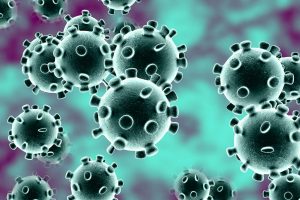That’s not sympathetic but encapsulates much and reminds me once in a fourth year university course in 1984, that was the first I really my brain into it, and would pronounce (and still do), we’re all hosts on a viral planet.
 I feel like U.S. talk show host, John Oliver: So much has happened in the past week, but we have to focus on something else, coronavirus.
I feel like U.S. talk show host, John Oliver: So much has happened in the past week, but we have to focus on something else, coronavirus.
And the best, most scientifically accurate coverage of coronavirus was Oliver’s satirical chat-fest last Sunday.
Global Cases 378,679
Total Deaths. 16,505
Total Recovered 100,982
What has startled me is how it traveled around the globe, the lack of verification or lack of efficacious testing, and the sheer virulence of the bug.
Kimberly Kindy of The Washington Post writes when Detroit restaurant chef Nik Cole gets sick, she pops a few vitamin C tablets, heads into work and then tops it off with Alka-Seltzer Plus so she can power through her day.
She is one of nearly 7 million food service workers in the United States who is forced to go without pay if she is too sick to work. Although 75 percent of Americans receive some paid sick days, government and industry data show that only 25 percent of food service workers have such benefits.
The U.S. Centers for Disease Control and Prevention says one in five workers have reported working at least once in the previous year while sick with vomiting or diarrhea.
As the threat of the coronavirus grows in the United States, public health experts are concerned about it being spread by sickened food service workers who prepare, serve and deliver a significant share of the meals consumers eat each day.
Americans depend heavily on food service workers. Half of all the money spent on food in the United States is for meals prepared in restaurants, cafeterias, food trucks and delis, according to Technomic, a restaurant industry research group. That amounts to about one-quarter of all meals Americans consume.
Our lack of paid sick leave will make the coronavirus worse
The food service industry is already wrestling with the long-standing threat of another disease called norovirus, which causes nearly 60 percent of all foodborne illness outbreaks. Of the reported outbreaks, 70 percent are caused by infected food workers, the CDC says.
The methods used to reduce the spread of norovirus during food preparation are the same as they are for coronavirus: sanitizing surfaces, proper and frequent hand washing, coughing into an elbow instead of a hand.
But those procedures are either not being properly followed or they don’t always work. The norovirus annually causes millions of people to develop gastrointestinal problems, with thousands hospitalized and hundreds dying.
Benjamin Chapman, a food safety expert at North Carolina State University who studies norovirus and other foodborne diseases, said the good news for consumers is that coronavirus is much easier to kill with standard sanitation products and procedures.
“Norovirus is very resistant to disinfection,” Chapman said. “It can persist for months in labs.” Coronavirus, on the other hand, dies within two to nine days, preliminary research shows.
“Coronavirus has a unique quarantine and recovery period that transcends the traditional policy debates surrounding paid sick leave,” said Vanessa Sink, spokeswoman for the U.S. National Restaurant Association. “Tackling this challenge will require that employees, businesses and government officials come together and follow proven procedures to protect the health of employees, customers and communities.”
New research shows that laws requiring businesses to offer paid sick days to service workers may help. Two Cornell University researchers published a report last month that revealed that influenza infection rates dropped by 11 percent in the first year after legislatures in 10 states required employers to offer paid sick leave.
“All these arguments that employees take advantage of it and become lazy — we see no evidence of that,” said Nicolas Ziebarth, an economist and associate professor of human ecology at Cornell, who co-wrote the report. “They took an average of two days of paid sick leave after they had earned it. That is not a crazy amount of sick leave in a year. They are not shirking.”
